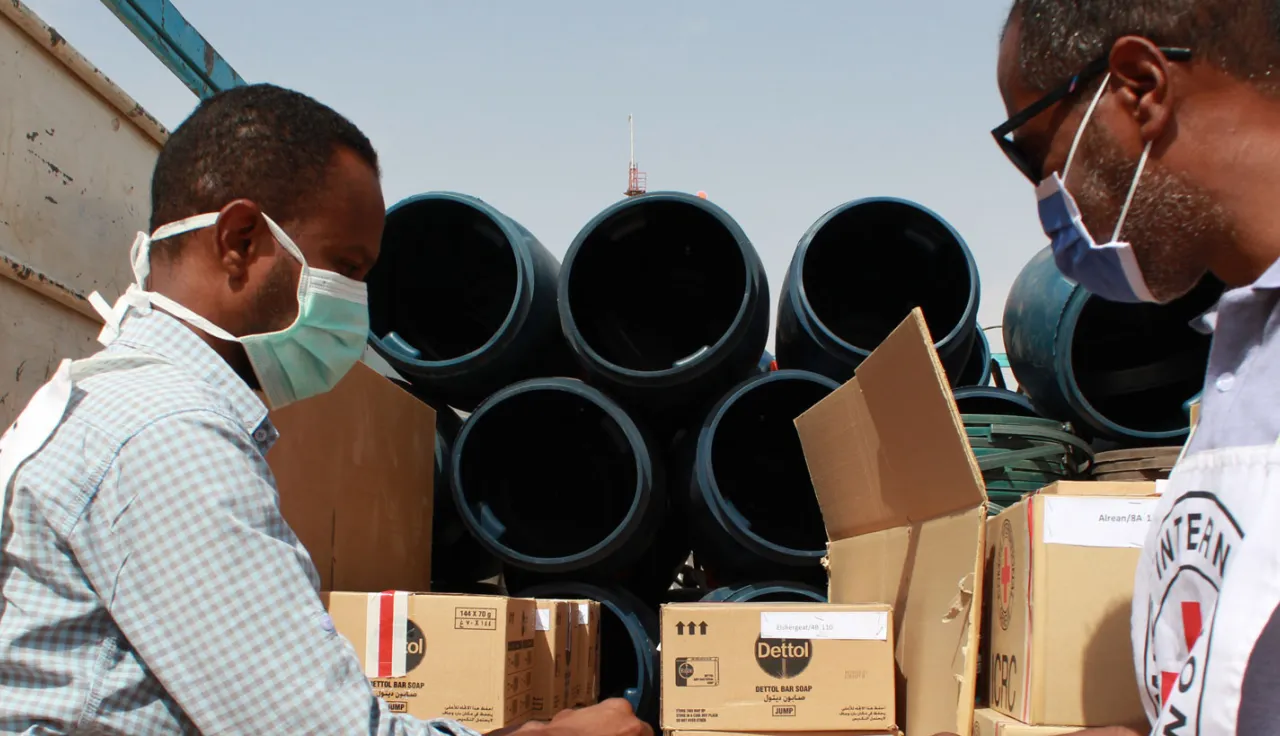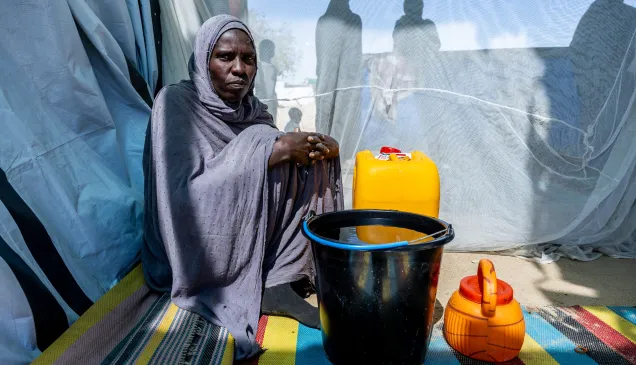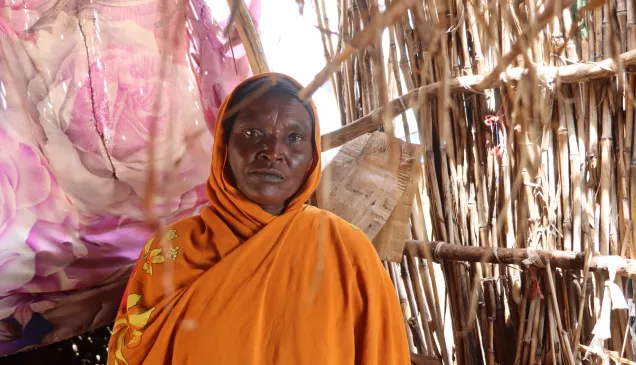Sudan: Helping prison authorities keep COVID-19 at bay

The health and well-being of detainees can be a constant worry for their loved ones at the best of times. Imagine how much worse this must be when a pandemic such as COVID-19 threatens to overwhelm existing services.
Social distancing is impossible in packed cells, water stations may be inadequate to address the need for frequent hand washing, and hygiene items such as soap and sanitizers require funds that may or may not be available. In short, the burden being put on prison authorities to ensure that detainees and prison staff stay safe and well is huge.
It is for this reason that the ICRC – with its long experience of visiting detention facilities across the world to ensure adequate conditions and treatment of detainees – has mobilized its teams of health, water and protection staff in countries across Africa, to support detention authorities put in place emergency measures to help prevent COVID-19 entering prisons and health facilities.
In Sudan, the ICRC is working closely with the Ministry of Interior's Prison and Reform Directorate to do the same.
If we want to help the most vulnerable in society, in ICRC that means we engage in prisons where the setting of collective confinement makes the inmates, and the prison staff, especially vulnerable. I am very pleased that the Prison and Reform Directorate immediately accepted our offer of support and that we are working together.
In recent days, a team from the delegation's water and habitat, protection and health departments installed 83 washing stands in ten prisons identified by the Directorate as being the most in need. The team also distributed more than 10,700 bars of soap to inmates and prison staff, provided 300 posters with illustrations and advice about the measures to adopt to keep safe, and shared hygiene awareness messages for broadcasting over prison public address systems.

Checking the water stations and soap before leaving for the distribution. Shiemaa AHMED/ICRC
Seventeen prison health officers participated in a three-day training of trainers (ToT) in Khartoum, organized by the ICRC's health department and the Prison and Reform Directorate. A team of two MSF medical staff led the training which focused on infection prevention and control measures, screening, triage, and patient flow. The participants will now train other health staff in their respective detention facilities.
The scale of the COVID-19 crisis globally is unprecedented and we need solidarity to tackle this pandemic. It is more important than ever to have a close collaboration amongst all actors who are trying to help, in order to strengthen our efforts to keep healthcare systems running and to minimize as much as possible the impact of the crisis.
Theoretical knowledge and practical skills about safe behavior are essential, but so, too, is having the right clothing. As a follow up to the training, the ICRC will provide gloves, masks and other personal protective equipment for prison staff in 11 places of detention in agreement with the Prison Directorate.

A training for 17 prison health officers was organized by the ICRC and the Prison Directorate and facilitated by MSF. Shiemaa AHMED/ICRC
For as long as the COVID-19 crisis lasts, detainees will be one of the communities most at risk, and the ICRC remains committed to continue, and expand, its support to prison authorities. In Sudan this includes not only replenishing the stocks and supplies already distributed but could also involve helping detainees and their relatives keep in touch by phone through the ICRC's 'Restoring Family Links' programme while family visits are curtailed. And the delegation's engineers stand ready to carry out modest, ad-hoc rehabilitation projects to improve prison water and sanitation facilities, depending on available resources and the feasibility of procuring materials during the current lockdown in Khartoum.



